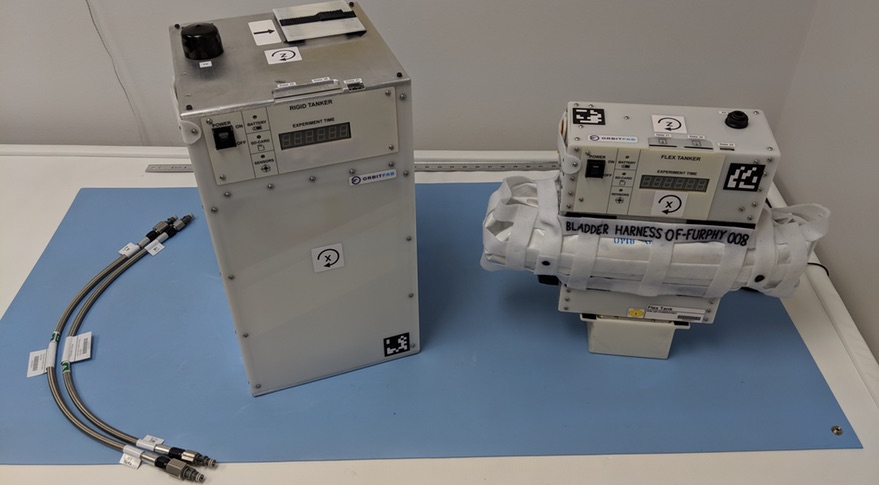Orbit Fab plans to refuel satellites right in orbit

This is what a space mini-gas station from Orbit Fab looks like. Source: Spacenews.com
Without fuel, neither cars nor orbital telescopes or satellites can work. Of course, they have different fuel, but is it easier with automobiles - has gasoline or diesel run out? You can easily fill. In space, the situation is different - there you can not just take and fill a full tank. Just because there is no gas station and the ability to refuel satellites on the go.
This means that if the fuel runs out, the spacecraft comes to an end - it is fully operational, yes, but it is not able to correct the orbit, and therefore cannot perform its functions further. Something similar happened with the Kepler space telescope, whose mission had to be completed precisely because of lack of fuel. Now there is a hope that mini-petrol stations will circulate through time on Earth’s orbit - for the time being exclusively for small satellites.
The startup Orbit Fab is engaged in this project, and not only in theory. Soon, a special system developed by this company will be tested in the business - however, so far in relatively comfortable conditions of the ISS, the main condition is microgravity.
')
The experiment involves the use of specialized "tankers" the size of Cubesat. They will be filled with water, not fuel, the main thing now is to check the refueling process. Tests that will be conducted at the station, will check whether it is possible to pump fluid from one system to another. The water used in the experiment will be pumped into the water supply system of the ISS, since everything goes into orbit in orbit.
According to the developers of Orbit Fab, the test will be successful and will show the efficiency of the technology in action. The hardware was created in just four months - all this was transferred to the ISS orbit by NASA using Dragon. Testing systems from Orbit Fab will allow to test a miniature gas station and its individual systems, including pumps and valves. In addition, the behavior of the fluid in the transfer from one container to another will be checked with the help of a specialized system.
If the testing is successful, then after a while the microsatellite refueling systems will be tested directly in orbit, in the conditions of outer space. This will happen at the end of next year.
If everything works out, the space industry will begin a new stage of development, since the lifespan of spacecraft can be increased, and very significantly.
Source: https://habr.com/ru/post/431962/
All Articles